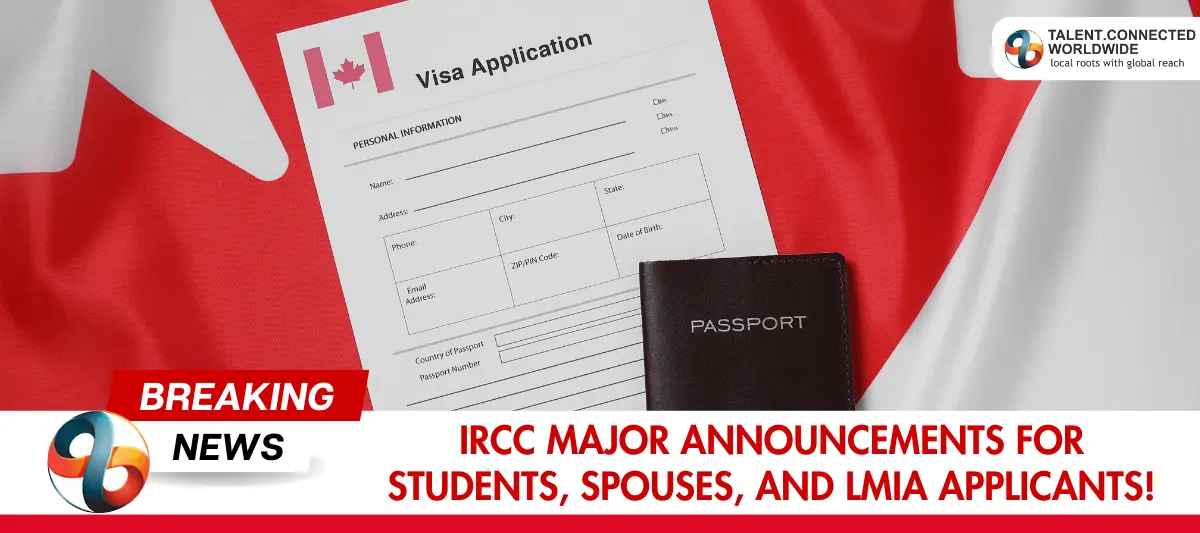
Immigration, Refugees and Citizenship Canada (IRCC) has announced some major changes for international students, their spouses and LMIA applicants.
IRCC Announcements for Students
IRCC has finally released the quota of Canada Study Permits to be issued in 2025, which is 437,000. This is 10% fewer permits to be issued than the target of 2024, which is set at 485,000.
The reason behind cutting down the number of permits for the next year is to support international students to get a higher quality of education. It will further ensure that more students get better employment opportunities in Canada.
Other than PGWP, students in Master’s and PhD programs also need to obtain Provincial Attestation Letters (PAL) in order to apply for a study permit.
Moreover, if you are looking forward to working in Canada after graduation on a PGWP, you need to first score at least CLB 7 if you are a university graduate, or CLB 5 if you are a college graduate. By meeting these requirements only will you qualify for a Post-Graduation Work Permit (PGWP). This measure is set to be implemented beginning 1st November.
Download Free Immigration and PR Guide PDF
IRCC Announcements for Spouses
Further, there’s a major announcement for spouses of international students. IRCC will only issue a study permit if their spouse is studying in Canada in a Master’s graduate program. Further, their study program must last for at least 16 months.
Work permits will only be eligible to spouses of foreign workers. This also requires the spouses to work in high demand sectors.
Spouses of foreign workers who are in the management and professional occupations will be issued work permits under the TFW or IMP (International Mobility Program). Whichever sector the spouse wants to work in must be in need of workers.
These changes will be implemented later on in this year.
IRCC Announcements for Foreign Workers
At last, there’s news for international temporary workers. Employers can only hire 10% of their workforce. However, if they are hiring in sectors such as healthcare, construction, and food-processing, they may hire up to 20% of their workforce.
ESDC and IRCC will only issue LMIAs to foreign workers for a year. And, lastly, if a Canadian region has an unemployment rate of 6% or higher, Canada can refuse LMIAs allotment to it.
These changes are brought to better safeguard international students and keep the integrity of the Temporary Foreign Worker (TFW) Program intact.
Don’t forget to fill out the form below for some insights and advice from our experts!






